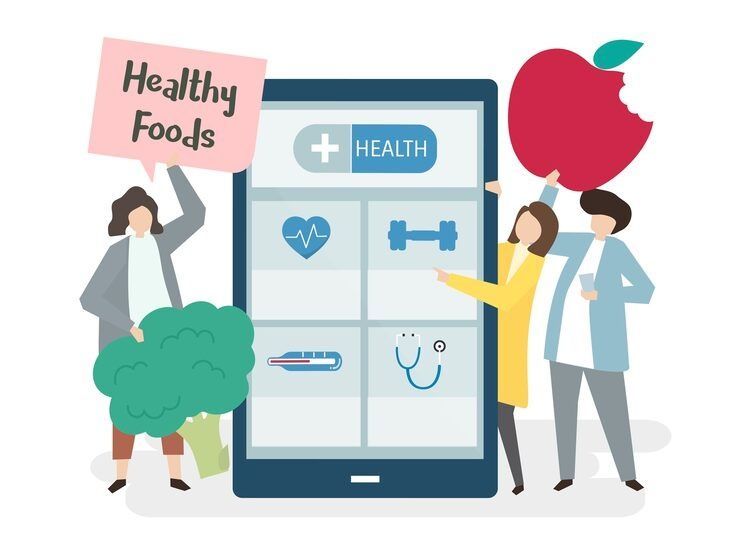Medical fitness refers to a person's ordinary nicely, focusing on prevention, prognosis and dealing with of illnesses. It is a extensive time period that consists of bodily health, intellectual welfare and get right of entry to to fitness services. For beginners, it's far necessary to recognize medical fitness, because it lays the foundation for the usage of wholesome behavior and growing treatment and way of life.
Medical health learning helps people understand how the body works, recognize symptoms and look for proper care. It exists to promote awareness of general health conditions, vaccination, nutrition, hygiene and mental health care.

Why Medical Health Matters Today
In today’s global, medical fitness is greater essential than ever. Advances in technology, converting existence, and improved stress stages have brought about a surge in persistent diseases like diabetes, heart problems, and mental fitness disorders.
This topic topics to:
Individuals looking to lead a more healthy existence
Families aiming to care for their cherished ones
Communities working toward preventive health measures
Good medical health practices help prevent diseases, lessen healthcare prices, and improve the general first-rate of life. It empowers people to manage health situations early, keep away from headaches, and stay longer, more gratifying lives.
Newer updates and trends (2024–2025)
The last 12 months have introduced enough symptoms in the health care system, especially to gain knowledge of medical fitness for beginners:
Telemedicine growth: In 2024, digital consultations expanded through about 40%, which led to further health services for rural and distant areas.
AI in diagnostics: IBM Watson Health and Google's Deepminds support doctors in diagnosing complex conditions and are accurate additions.
Mental Health Awareness: Further emphasis is placed on the fact that intellectually emphasized, to be broad with officers supported guide and counseling apps.
Vaccination campaign: The post-pandemic, the worldwide vaccination package was strengthened in 2024, focusing on respiratory diseases and preventive diseases.
Wearable Health Equipment: Fitness Trackers and Fitness Monitor gained popularity, supporting people monitored the heart's charge, sleep pattern and physical pastime.
These trends shed light on how time and public health work shapes human medical fitness.
How to create laws and tips to create clinical fitness
Government applications and guidelines play an essential role in ensuring that medical fitness offerings are available and effective:
The National Health Mission (NHM): The application specializes in improving and access to fitness care infrastructure and get right of entry to throughout India, especially in later areas.
Ayushman Bharat: Offers health insurance coverage to thousands and thousands of people, who help people contend with human beings with out economic problems.
Food Safety and Standards Authority India (FSSAI): Nutrition checks marking and meals protection, and ensures that human beings create an informed weight loss plan alternative.
Mental Health Act 2017: Protects the rights of people running with intellectual health problems, selling get right of entry to to treatment with out stigma.
Digital Health Initiative: Initiative was initiated in 2023, and objectives to combine era into the health care system which include electronic health records and telemedicine.
These legal guidelines and guidelines support scientific fitness via presenting recommendations, ensuring proper get admission to to the health care machine and encouraging preventive care.
Accessories and resources for beginners in medical health
Different types of equipment and resource can help individuals to monitor and improve their health:
MyHealth app - medical records, appointments and prescriptions helps tracks.
HealthiFyme - offers nutrition tracking and diet plan based on personal goals.
The practice links users to doctors for consultation and health examination.
CDC and WHO's website - confirmed health information, vaccination programs and safety guidelines.
Mental Health apps such as Woebot and TalkSpace - provide cognitive behavioral therapy and support for stress management.
BMI calculator and calorie sporers - helps maintain weight and fitness goals.
These resources are designed to strengthen users, making it easier to navigate in health decisions.
There are frequently questions on medical health
What is simple health check -ups -Ps -salal all receives anybody often?
Basic health assessments consist of blood strain, blood sugar trying out, cholesterol levels and evaluation of body mass index (BMI). Evaluation of mental fitness is also encouraged.
What function does mental fitness play in popular welfare?
Mental fitness is essential because it influences emotional balance, pressure management and bodily health. Addressing intellectual fitness problems allows to save you lengthy headaches.
Is telemedicine safe and dependable?
Yes, telemedicine is secure when executed via licensed systems and showed medical doctors. It decreases and decreases the want for travel, particularly at some point of an emergency.
How to keep away from wrong information in the fitness care gadget?
For instance, and to rely on dependable sources that licensed health specialists. Avoid unacceptable claims from social media systems.
Final assessment of medical health for beginners
Medical health is an original aspect of balanced and full life. Understanding the basics gives individuals an opportunity to control health, make informed decisions and adopt preventive measures quickly.
Recent progress in technology, side River and available equipment has made it easier for beginners to be on top of health. With proper guidance and consciousness, individuals can improve their physical and mental welfare, contribute to a healthy society.